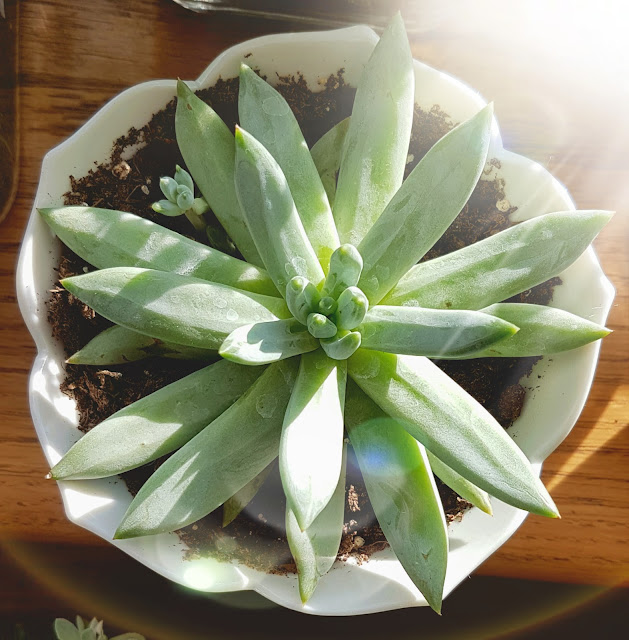It’s no coincidence that I’m writing this as a “Freedom Convoy” is occupying downtown Ottawa in protest of government measures to curb the spread of the COVID-19 virus. Some deep and long-standing concepts of how the country, Canada, operates as a nation, where power lies, what law enforcement should look like are being tested. But it goes even deeper than that; a struggle to balance free will with social convention is as significant now as it was at the turn of the 15th – 16th Century, when the Reformation took hold, when a poor peasantry rose up against the privileged powers that kept them enslaved and hungry.
The time
marked the end of the “Middle Ages,” and the birth of a humanist sensibility that
changed everything. It took a few hundred years, however, and a Christian
Reformation, the French Revolution, the Magna Carta, the period of discovery
and the rending of the church from the clutches of the state to shunt humanity
in Europe toward democratic governance. It’s no coincidence that Gutenberg’s
invention of the printing press and growing literacy hastened the growth of a humanist
view of the world in opposition to the power of a corrupt, mercenary church/state
dictatorship.
Quite
obviously, laws made by a dictatorial regime existed to enslave and keep enslaved
the lower classes whose labours generated the wealth, hence the privileged
status, of the dictatorship of the church/state. But what was needed to free
the enslaved was not the abolition of law, but a means for formulating laws
that protected the freedom of the most people, most of the time. Laws that didn’t
favour the few, but which allowed every man, woman and child the opportunity to
freely seek to better their situation, realize their dreams. Laws that made
justice for everyone the centrepiece of what it means to be a nation. It’s hard
to visualize lawmaking that leads to justice and freedom to be made in any
better way than with participation of the entire citizenry. That’s what democracy
has sought to achieve.
It’s not
been entirely successful, of course. Human greed, human ignorance, human
gullibility, economic systems that can be exploited to divide us once again
into the haves and have nots persist. In such an environment, it’s hard to see
what individual freedom actually looks like, hence the “peasant revolt” of the
truckers who are not attacking authority with pitchforks and hoes, but with
massive trucks. For the protestors, it’s apparently hard to see why emergency government
mandates (laws) extend freedom rather than curtailing it. Mandates (vaccine,
masking, social distancing, etc.) free me to shop for groceries without fear of
contracting the virus, for example. Over 80% of Canadians voted for the
mandates by being vaccinated, wearing masks and adhering to gathering limits.
The strategy may prove in the end to have been wrong, but that’s not the point.
The choice of how we are governed is far more significant for ours and future
generations than is a short period of requiring a vaccination to cross a
border. Protests are acceptable, even protected, in Canada but the current truckers’
convoys are not just the presentation of an objection, they’re an attack on
democratic governance.
In their
occupation of key sites like border crossings and legislatures, the protestors
are attempting to buy their “freedom” by stealing it from others. This case can
be made logically; freedom of movement at protest sites has been curtailed by
the demonstrations. But to make this case would be more argumentative than
useful. The key to our behaviours during this pandemic may lie too deeply in
our very nature as humans, down in the depths where fear and anger and their
opposites lie.
I
conclude this with two quotes:
“So that, however it may be mistaken, the end [purpose] of
law is not to abolish or restrain, but to preserve and enlarge freedom: for in
all the states of created beings capable of laws, where there is no law, there
is no freedom: for liberty is, to be free from restraint and violence from
others; which cannot be [exist] where there is no law: but freedom is not, as
we are told, a liberty for every man to do what he lists [wants] ( … ) but a
liberty to dispose [act] and order as he lists [wishes], his persons, actions,
possessions, and his whole property, which the allowance [protection] of those
laws under which he is, and therein [because of their protection] not to be
subject to the arbitrary will of another, but freely follow his own. — John
Locke, Two treatises of government, p. 234 (1689).”[1]
“Let us not seek to satisfy our thirst for freedom by
drinking from the cup of bitterness and hatred.”-Martin Luther King, Jr.
[1] https://inpropriapersona.com/articles/locke-where-there-is-no-law-there-is-no-freedom/ed,
retrieved February 6, 2022. Edited for clarity by GGE

No comments:
Post a Comment